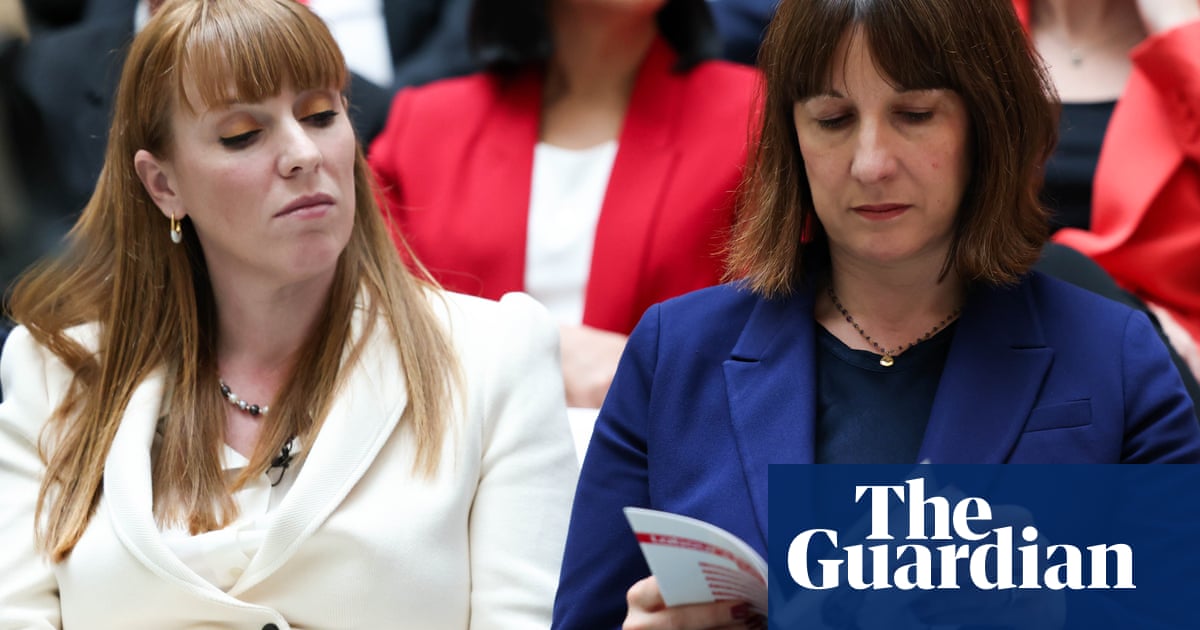Angela Rayner urgedRachel Reevesto consider a series of wealth tax rises, it has been revealed, in a move that underscores growing unease within the government over the chancellor’s tight spending plans.
A memo sent by the deputy prime minister to the chancellor before March’s spring statement proposed eight potential tax measures worth an estimated £3bn to £4bn a year, including reinstating the pensions lifetime allowance and increasing the corporation tax rate for banks.
The proposals were not adopted, with Reeves opting instead to announce cuts to public spending in March, in line with her self-imposed fiscal rules.
While the memo, obtained by theDaily Telegraph, was framed as a discussion document, it is likely to be seen as Rayner staking out ground for Labour’s left wing within a cabinet increasingly shaped by Starmer-aligned centrists.
The document, called “alternative proposals for raising revenue”, argued the measures would not breach Labour’s 2024 manifesto pledge not to raise taxes “on working people”.
Suggestions included ending inheritance tax relief on shares listed on the smaller Aim stock market, scrapping the £500 dividend tax-free allowance, and freezing the threshold at which the 45p additional income tax rate applies.
Rayner also proposed raising dividend tax rates for higher earners and targeting property traders who use corporate structures to avoid stamp duty.
Jeremy Hunt, the former Conservative chancellor, abolished the pensions lifetime allowance when he was in office. Labour promised to reinstate it when in opposition but dropped the pledge before the general election. The memo suggested that the change could raise £800m.
The memo was sent two weeks before Reeves delivered her fiscal statement on 26 March, and came as pressure mounted inside cabinet over expected cuts in this summer’s spending review.
Rayner is understood to have raised concerns directly during a March cabinet meeting, where several ministers reportedly questioned whether revenue-raising options had been sufficiently explored.
Government insiders said it was not unusual for policy papers to be circulated informally across departments, and the proposals shouldn’t be taken as indicative of an official endorsement.
The tension reflects broader discomfort among some Labour MPs over the direction of economic policy, with criticism in particular over the chancellor’s decision to scale back the overseas aid budget and introduce tighter eligibility tests for personal independence payments.
Sign up toFirst Edition
Our morning email breaks down the key stories of the day, telling you what’s happening and why it matters
after newsletter promotion
Although Reeves has so far resisted calls for new tax increases, she is expected to revisit revenue options in the runup to the autumn budget, as forecasts for the public finances worsen.
Asked about the memo on BBC Breakfast, the environment secretary, Steve Reed, said the cabinet was “united behind the government’s plan for change”.
Reed said Labour had already increased taxes on the wealthy, and highlighted changes made to the non-dom tax status, which he said would resulting in the richest paying more.
The Conservatives seized on the memo as evidence of Labour’s instincts on taxation. “The chancellor has repeatedly refused to rule out another tax raid in the autumn, and now we know why – Labour’s top brass, including the deputy prime minister, want to come back for more,” said Mel Stride, the shadow chancellor.
A government spokesperson said: “We don’t comment on leaks.”
